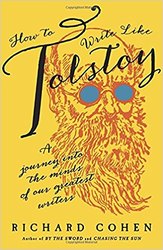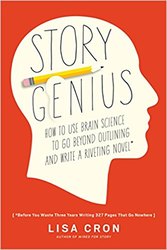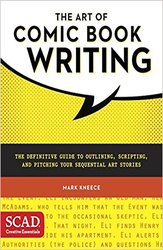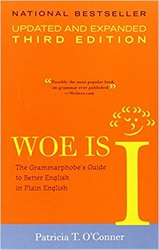
If you’re writing a novel, fear not. These fantastic reads will make you an even better writer. If that's even possible.
And this funny quiz will surely tell you if you have what it takes to be a successful author.
 For anyone who has ever identified with a hero or heroine, been seduced by a strong opening sentence, or been powerfully moved by a story’s end, How to Write Like Tolstoy is a thought-provoking journey inside the minds of the world’s most accomplished storytellers, from Shakespeare to Stephen King
For anyone who has ever identified with a hero or heroine, been seduced by a strong opening sentence, or been powerfully moved by a story’s end, How to Write Like Tolstoy is a thought-provoking journey inside the minds of the world’s most accomplished storytellers, from Shakespeare to Stephen King
“I have tried, as far as possible using the words of the authors themselves, to explain their craft, aiming to take readers on a journey into the concerns, techniques, tricks, flaws, and, occasionally, obsessions of our most luminous writers.”—from the Preface
 Writing memoir is a deeply personal, and consequential, undertaking.
Writing memoir is a deeply personal, and consequential, undertaking.
As the acclaimed author of five memoirs spanning significant turning points in her life, Beth Kephart has been both blessed and bruised by the genre. In Handling the Truth, she thinks out loud about the form—on how it gets made, on what it means to make it, on the searing language of truth, on the thin line between remembering and imagining, and, finally, on the rights of memoirists.
Drawing on proven writing lessons and classic examples, on the work of her students and on her own memories of weather, landscape, color, and love, Kephart probes the wrenching and essential questions that lie at the heart of memoir.
A beautifully written work in its own right, Handling the Truth is Kephart’s memoir-writing guide for those who read or seek to write the truth.
 It’s every novelist’s greatest fear: pouring their blood, sweat, and tears into writing hundreds of pages only to realize that their story has no sense of urgency, no internal logic, and so is a page one rewrite.
It’s every novelist’s greatest fear: pouring their blood, sweat, and tears into writing hundreds of pages only to realize that their story has no sense of urgency, no internal logic, and so is a page one rewrite.
The prevailing wisdom in the writing community is that there are just two ways around this problem: pantsing (winging it) and plotting (focusing on the external plot).
Story coach Lisa Cron has spent her career discovering why these methods don’t work and coming up with a powerful alternative, based on the science behind what our brains are wired to crave in every story we read (and it’s not what you think).
In Story Genius Cron takes you, step-by-step, through the creation of a novel from the first glimmer of an idea, to a complete multilayered blueprint—including fully realized scenes—that evolves into a first draft with the authority, richness, and command of a riveting sixth or seventh draft.
 A practical guide for beginner and advanced comic book writers that outlines the steps needed to successfully craft a story for sequential art.
A practical guide for beginner and advanced comic book writers that outlines the steps needed to successfully craft a story for sequential art.
With this latest book in the SCAD Creative Essentials series from the esteemed Savannah College of Art and Design, comics writer and instructor Mark Kneece gives aspiring comic book writers the essential tools they need to write scripts for sequential art with confidence and success. He provides a practical set of guidelines favored by many comic book publishers and uses a unique trial and error approach to show would-be scribes the potential pitfalls they might encounter when seeking a career in comics writing. Supported by examples of scripting from SCAD's students, faculty, and alumni,The Art of Comic Book Writing strips away the mysteries of this popular artform and provides real-world advice and easy-to-follow examples for those looking to write for the comics medium.
 "Former New York Times Book Review editor and linguistic expert O'Conner...updates her bestselling guide to grammar, an invigorating and entertaining dissection of our ever-evolving language." - Publishers Weekly
"Former New York Times Book Review editor and linguistic expert O'Conner...updates her bestselling guide to grammar, an invigorating and entertaining dissection of our ever-evolving language." - Publishers Weekly
In this new edition of Woe Is I, Patricia T. O’Conner unties the knottiest grammar tangles and displays the same lively humor that has charmed and enlightened grateful readers for years. With new chapters on spelling and punctuation, and fresh insights into the rights, wrongs, and maybes of English grammar and usage, Woe Is I offers down-to-earth explanations and plain-English solutions to the language mysteries that bedevil all of us.
For more inspiring books, visit Writers Boon Books sections. We have one for every topic of interest: grammar, publishing, marketing, book selling.
We live to learn. And guess what, more we learn, better writers we become.